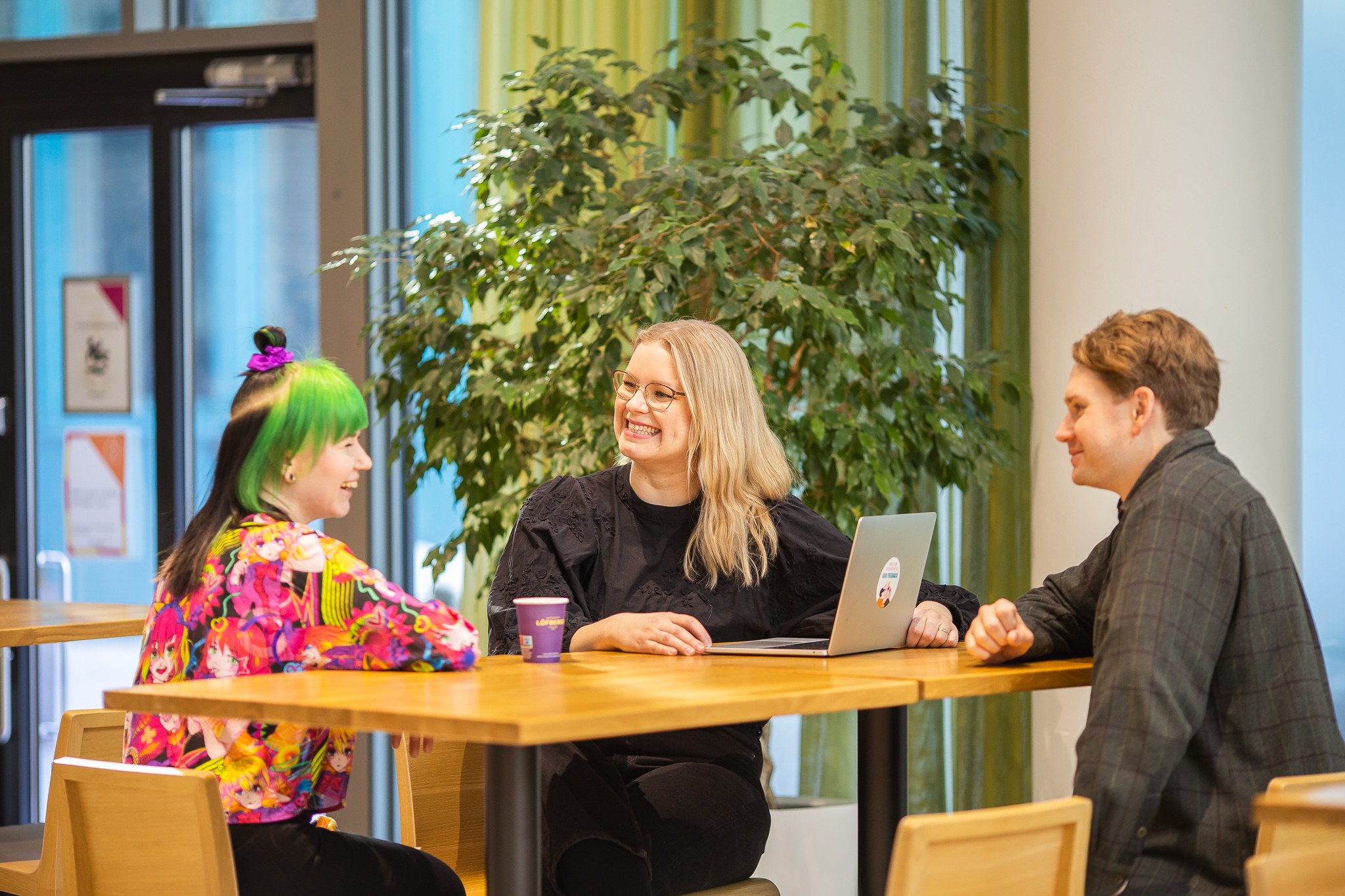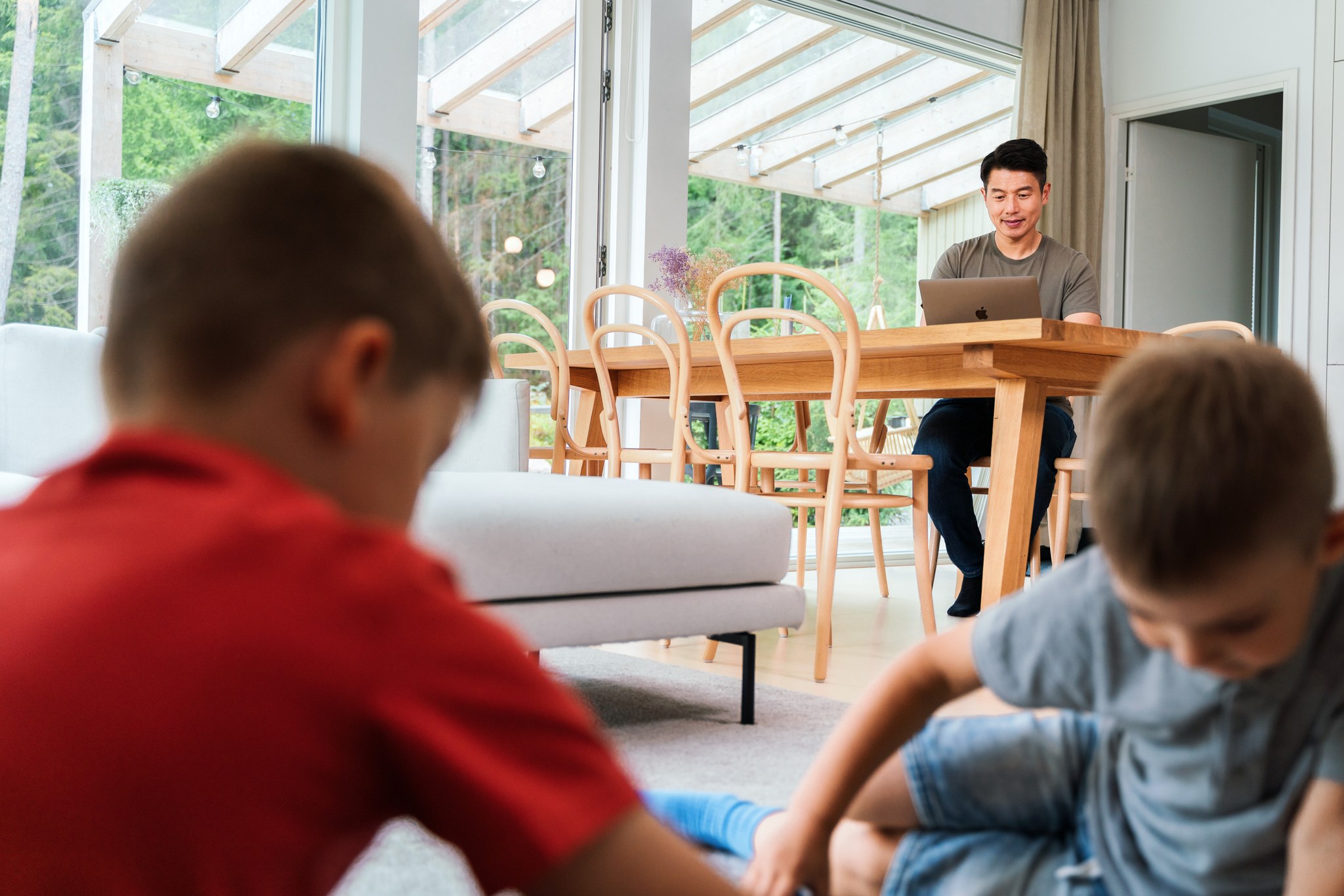At Gofore, we are committed to create an inclusive workplace for an increasingly diverse group of people. As one of our strategic goals we want to offer personalised support for the different kinds of needs and wishes of our people. For making it happen, it is obvious that we need to understand diversity better.
We believe that by taking neurodiversity better into account at the workplace, we increase both community’s wellbeing and inclusiveness. We also strengthen our leadership and hopefully make our people feel more engaged, innovative and productive.
Raising awareness around the topic of neurodiversity is also one of Gofore’s goals in diversity and inclusion (D&I). We believe that as an employer, we have both the responsibility and the possibility to make different work life experiences visible. That’s why we would also like to invite You to join us on this learning journey.
Let’s figure out neurodiverse work life together!
Why do we talk about neurodiversity?
Last year at Gofore, we saw the topic of neurodiversity rising in various occasions, as our people brought it up both in our Employee Experience and D&I surveys. Our People Leaders (i.e. our people managers) have also shared their need to have more knowledge around the topic in order to be better leaders. These led us to investigate neurodiversity further.
According to studies, neuroatypical diversity is something that as many as 15-20% of people possess. Clearly this is a type of diversity we all should embrace and understand better.
As many neurodivergent people see the world a bit differently, understanding neurodiversity more deeply not only creates better work life but also helps to design and build better and more inclusive digital services for people around us.
How to support neurodiversity – tools and practices
As first steps, we’ve identified some practices and tools in our path.
Working as one team with customers and partners
In line with our strong collaboration with our well-being partners Mehiläinen and Ilmarinen, and to respond to people’s requests, we are planning on arranging different kinds of trainings and workshops to educate and support People Leaders and other Goforeans in identifying diversity, supporting neuroatypical team members and to offer personalized support.
We are also paying attention to the ways we can support our customer teams in regards e.g. accessibility and inclusivity of the services that we build and how to create successful, inclusive teams. Why not even arrange open webinars to share our learning path and build broader awareness on this important topic later on?
Self-reflection and professional development
As an example: Our People Leaders and teams are getting support for understanding themselves, their working styles, and those of each other better. We believe that knowing each other’s differences and respecting them creates a sense of belonging and togetherness, which is followed by engagement. Offering tailored professional growth paths is also something we have worked on in the previous year. Some of the concrete tools that we use for self-reflection and development are WorkPlace Big Five Profile™ and making personalized professional development plans.
Support for everyday situations
We follow several different practices recommended for neuroatypical individuals. Such practices are, for example, flexible working hours and locations; possibility to use headphones, electric desks, different types of chairs, visual barriers, quiet areas and a relaxation room as well as a broad variety of non-mandatory community building activities and events.
Inclusion in recruitment
In late 2022 our recruitment team started a project on possible inclusivity blind spots in our recruitment process. Our aim is to find any potential biases or other unnecessary obstacles in our recruitment practices to ensure that our candidate path is a source of diversity and inclusivity.
Speedclub for peer support – an example of Goforean culture
At Gofore, we share and care very transparently. The possibility of being one’s authentic self has for years been one of the most important metrics within our employee experience. In our latest EX survey, 91% of Goforeans felt that they can be their authentic selves.
One very good example of feeling psychologically safe at work, is a Slack channel called Speedclub. It was formed by one neuroatypical Goforean around a year ago – for discussion, for sharing information and most importantly for peer support for neurodivergent people. This internal community has grown steadily and now includes just over 5% of Gofore’s workforce. Speedclub is not only for neuroatypical people, but one can also turn to the group for support when having neurodivergent loved ones.
Due to the nature of neurodiversity, there’s a lot of stigma and shame attached to it, and many suffer from debilitating symptoms all their lives before getting help. The lack of understanding of neurodiversity often leads to lack of support from employers, families and friends and may intensify the feeling of being different and not good enough. Raising awareness of this is crucial in order to encourage people to get support and feel accepted. Awareness within a workplace, supported by the employer and colleagues, can enable sufferers to build on their strengths and potential rather than focusing only on challenging areas of life.
Through raising awareness and finding the right support mechanisms, we are able to make any workplace and environment inclusive and supportive. Most of us have, whether we know it or not, someone in our networks who is neurodivergent.
Let’s join forces to make working life inclusive for us all. Are you with us?
#Neurodiversity #GoforeCrew
Our project team members from Speedclub and People Operations
Definition of neurodiversity
“Neurodiversity describes the idea that people experience and interact with the world around them in many different ways; there is no one “right” way of thinking, learning, and behaving, and differences are not viewed as deficits.”
“The word neurodiversity refers to the diversity of all people, but it is often used in the context of autism spectrum disorder (ASD), as well as other neurological or developmental conditions such as ADHD or learning disabilities.”
“Understanding and embracing neurodiversity in communities, schools, healthcare settings, and workplaces can improve inclusivity for all people. It is important for all of us to foster an environment that is conducive to neurodiversity, and to recognize and emphasize each person’s individual strengths and talents while also providing support for their differences and needs.”
Source: Harvard Health Publishing: What is neurodiversity?
Sources:
- British Medical Bulletin: Neurodiversity at work: a biopsychosocial model and the impact on working adults
- Harvard Health Publishing: What is neurodiversity?
Learn more about the topic



